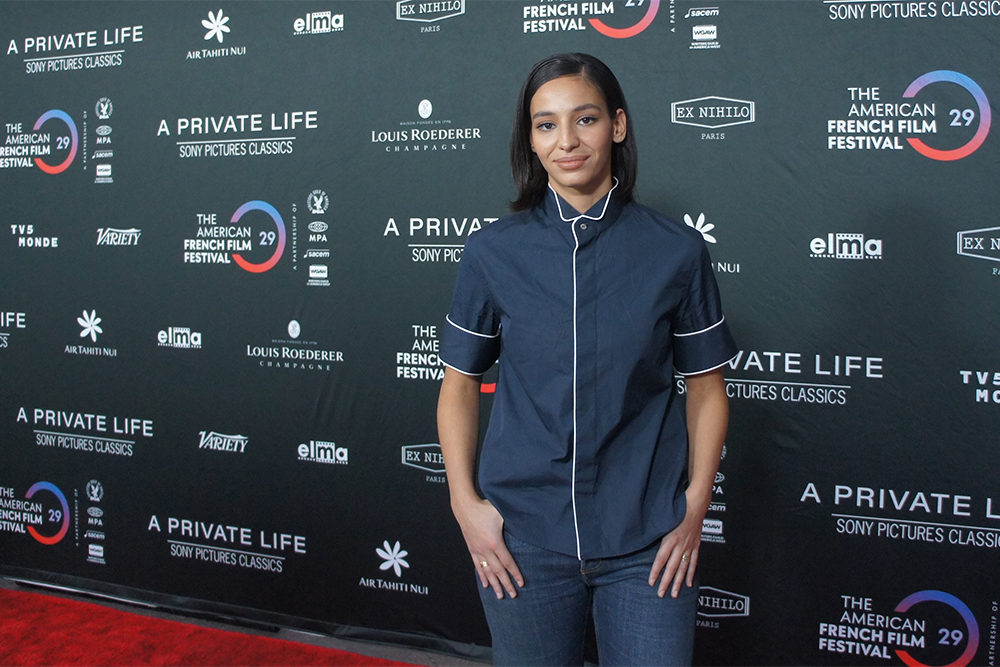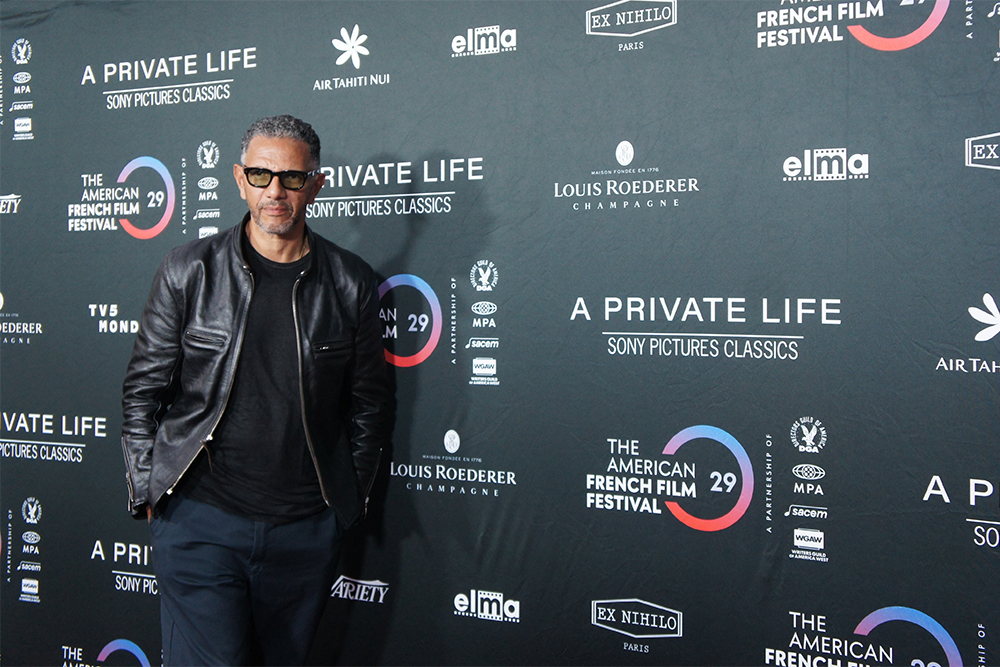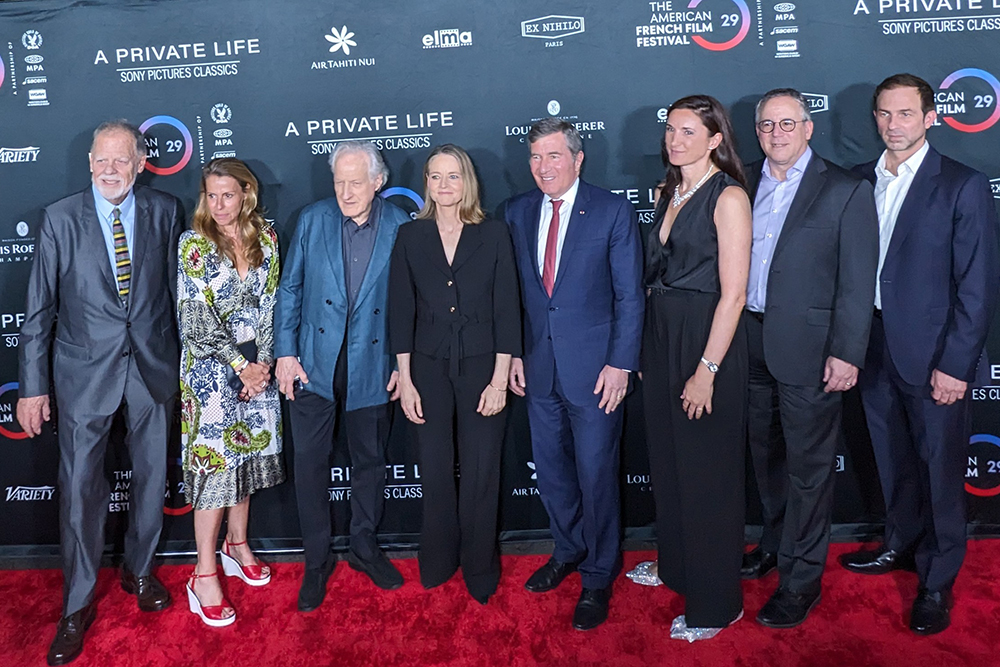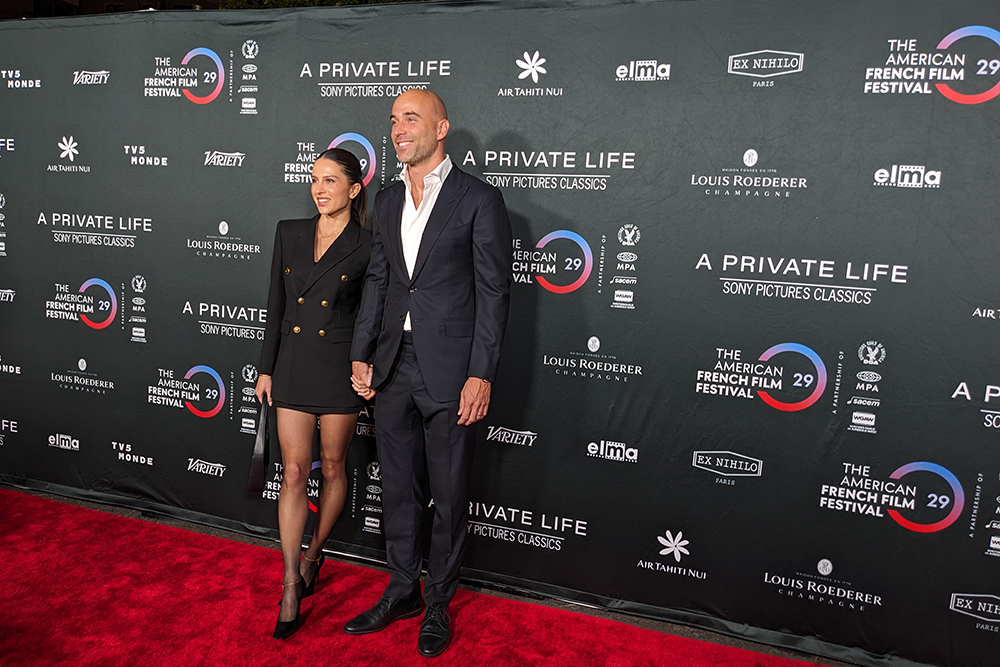Festivals - The American French Film Festival 2025 : When Rebecca Zlotowski and Jodie Foster Set the Tone for a Franco-American Week
By Mulder, Los Angeles, Hollywood, Directors Guild of America Theatre, 28 october 2025

Under the soft lights of Sunset Boulevard, The American French Film Festival 2025 opened its 29th edition at the Directors Guild of America Theater Complex with a red carpet that gave Los Angeles a touch of Parisian flair. The dates had been eagerly awaited for weeks — from October 28 to November 3 — and the DGA setting offered its familiar blend of Hollywood precision and French cinephile warmth. From the very first evening, the festival’s organizers emphasized this unifying identity, reminding guests that this is the largest American event dedicated exclusively to contemporary French cinema and television, taking place right in the middle of awards season.
The opening film, Vie Privée (A Private Life), set the tone: an elegant and tense dramatic thriller directed and co-written by Rebecca Zlotowski, featuring a prestigious cast led by Jodie Foster, with Daniel Auteuil, Virginie Efira, and Vincent Lacoste completing an intercontinental lineup that made the red carpet buzz long before the lights dimmed. The selection had been announced in advance by trade outlets and the festival itself, but once guests took their seats, it generated even more excitement. In a city where premieres happen nightly, the meeting of a Hollywood icon like Jodie Foster and a resolutely French creative voice like Rebecca Zlotowski gave the gala a special energy, blending American star power with French sensibility.

The ceremony’s rhythm was as efficient as it was refined. A reception began at 5:45 p.m. in the lobbies of the DGA’s Renoir and Truffaut theaters, the film started at 7:30 p.m., and—true to the festival’s promise of prioritizing dialogue over simple spectacle—the screening was followed by an onstage conversation with Rebecca Zlotowski and Academy Award winner Jodie Foster. This Q&A tradition holds weight here: at TAFFF, the opening night isn’t a photo opportunity that fades with the credits, but a curated exchange designed to bring the audience closer to the act of filmmaking itself. The schedule was public, but in the theater the flow felt remarkably precise, the transitions smooth, and the post-film discussion warm rather than superficial.
On the red carpet, the festival highlighted its role as a meeting point between French artists and the American industry—a philosophy amplified this year by partners and cultural institutions defending French creativity in Hollywood. Posts from the festival’s official social media accounts captured camera flashes and bilingual banter, while Sacem spotlighted the broader 2025 narrative: the momentum of French cinema following recent awards-season triumphs and a slate of films vying for the Best International Feature Oscar. The image wasn’t accidental—it reflected a deliberate intention to show that French stories travel well and are warmly received in Hollywood.

The context reinforced that impression. The festival’s continued home at the DGA testifies to a close collaboration with the screenwriting and filmmaking community; the DGA itself reminded its members that, beyond the opening night, festival screenings are accessible to guild cardholders and a guest—an often-overlooked reason why TAFFF screenings tend to be filled with professionals asking unusually perceptive questions. The makeup of the audience subtly shapes the mood of the opening night: applause peaks at the credits, but the quiet hum you hear comes from editors, composers, and assistant directors mentally noting choices they might bring back to their own sets.
A short note on the evolution of the festival’s profile explains why this year’s opening carried particular weight. Since its renaming from COLCOA to TAFFF in 2022, the event has made its mission clearer for newcomers—less acronym, more invitation—and has positioned itself as a major pipeline between France and Hollywood. The organizers have made no secret of their goal to place the festival at the forefront of awards season; the opening night message is essentially this: here comes the French wave before it crashes everywhere else. That clarity—combined with institutional support from the Franco-American Cultural Fund—made the red carpet feel less ceremonial and more like a launch pad.

If the opening night serves as the thesis, the week that follows provides the argument. With more than seventy films and series in the 2025 lineup and sixty-nine works eligible for the TAFFF Awards, the scope of this first evening gave the red carpet its deeper meaning: discovery now, context later. Even the week’s centerpiece, Nouvelle Vague by Richard Linklater, announced in advance by the festival, hinted at the curatorial dialogue TAFFF aims to foster this year—American auteurs engaging with French expressions and vice versa. The opening ceremony thus felt like page one of a book that effortlessly switches between languages without losing the thread of its story.
There’s also a practical detail that regulars quietly appreciate and newcomers quickly notice: TAFFF operates with an almost obsessive punctuality, rare in red-carpet culture, and that discipline makes the opening night conversation more generous. Because everyone is seated on time, the post-screening discussion doesn’t feel like an afterthought squeezed into an overrun schedule. This isn’t marketing spin; it’s a production reality made possible by the DGA venue and a decade-long partnership model that treats the audience as collaborators rather than customers. You can feel it in the room—and that’s why the opening ceremony tends to blossom into a week of sustained engagement instead of a fleeting burst of glamour.

The 2025 red carpet and opening ceremony achieved what this festival consistently does best: they brought the audience closer to the art. The photos and posts will sell the glitz, but the essence lay in the framing—Rebecca Zlotowski unveiling a new film in a space built to interrogate it, Jodie Foster answering questions with the poise of an artist who has known every kind of spotlight, and an audience that came as much to listen as to applaud. For one evening, Hollywood felt perfectly bilingual, and the curtain rose on a week promising not just premieres, but genuine conversations about the future of French cinema and how it continues to reshape American screens.
You can discover our photos in our Flickr page
Photos: Sophie Janinet

